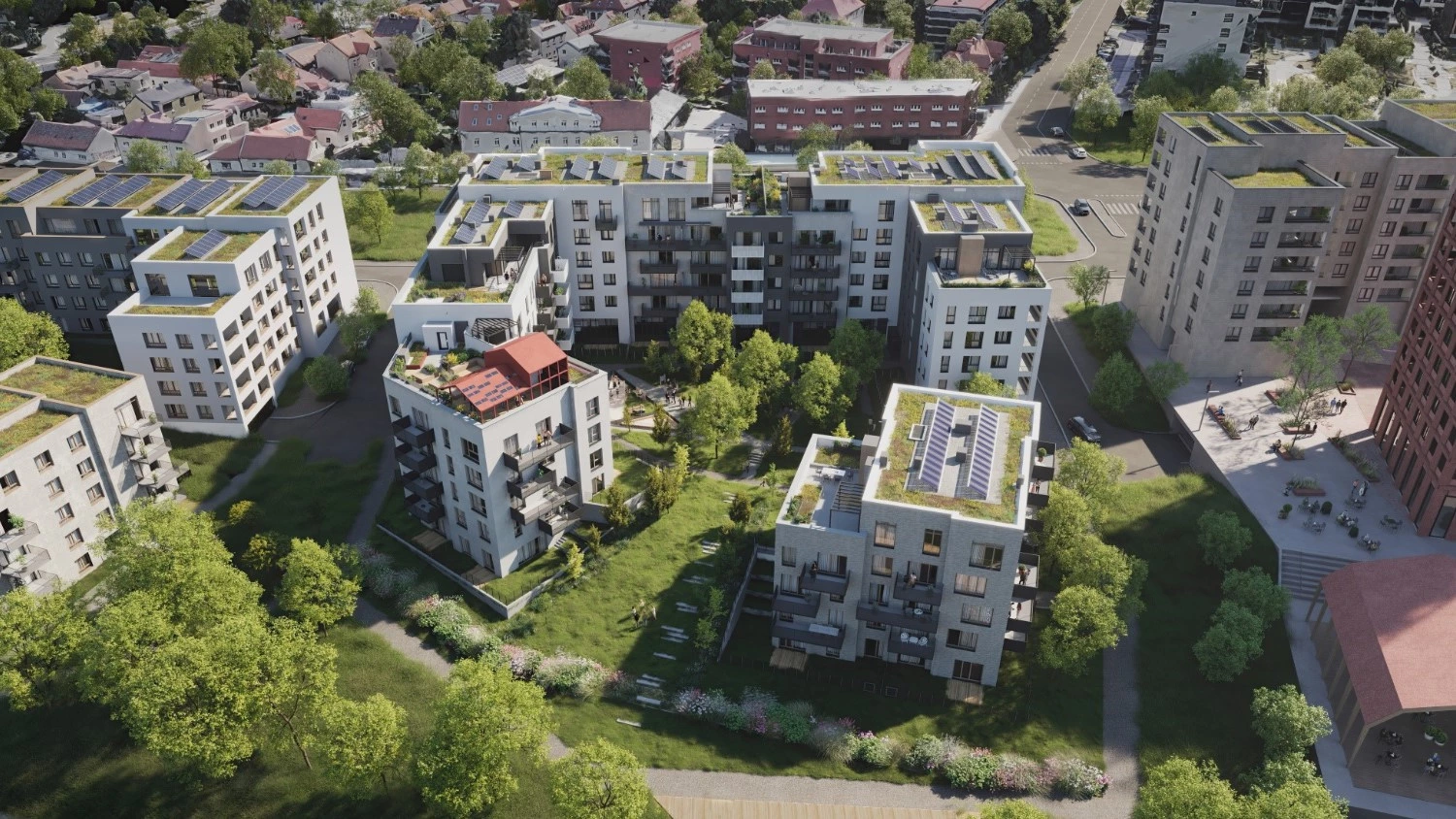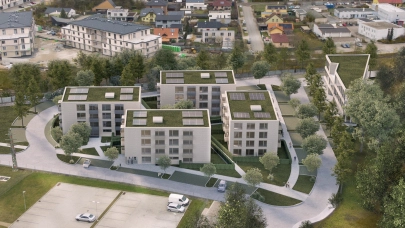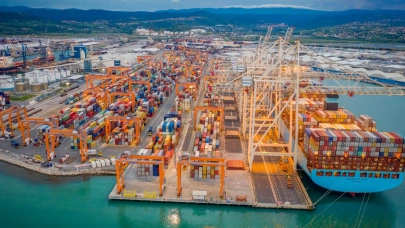
Skanska has launched the sale of the second phase of Modřanský cukrovar, which will offer 126 apartments in four residential sections. The developer is applying sustainability principles in the construction and the planned construction of the apartment buildings is approaching the passive standard in the highest PENB energy performance category - A. Each apartment will already draw energy from photovoltaic panels on the roof and will be able to use recycled water. The developer expects to start construction this winter with completion expected in 2025.
The offer of new stages of the Modřanský cukrovar residential project is dominated by flats with a layout of 2kk to 4kk, including small 1kk, the largest 5kk or so-called townhouse flats - modern lofts with private access directly from the courtyard. All apartments have a front garden, terrace or balcony, or terrace. There will also be 6 commercial units on the ground floor, and the underground floors will have spaces for storing household waste, cellars, cleaning, a bike room with a carriage room, as well as a system for recycling so-called grey water, garages with preparation for charging stations for electric vehicles, and rooms for technical equipment. The role of the general architectural studio in the entire project is held by the Chybík + Krištof studio, the design of the second phase was taken care of in cooperation with the Loxia studio. Ferdinand Leffler's studio Flera is responsible for the design of public spaces.
"Modřany Cukrovar is characterised by its uniqueness and sustainable living. In addition to photothermal energy, thanks to new legislation, we are already working with more photovoltaics and focusing on recycling water and materials, which will also be seen within the public spaces," said Petr Dušta, of Skanska Residential, the developer. There are 93 photovoltaic panels on the roofs of the buildings, which will save energy not only in all homes but also in common areas. The gas consumption for preheating hot water will be reduced by 63 photothermal panels and now also by waste heat recovery from recycled, so-called grey water. Exterior blinds will prevent the apartment from overheating and a heat recovery unit will provide fresh air. The complex is built on a drinking, rain and domestic water management system that meets the so-called LID concept (Low Impact Development). A key contribution to sustainability here is the use of recycled concrete "rebetong", which is produced from construction rubble at Skanska to replace natural aggregates. Typically waste material is also used for the load-bearing structures of the houses. The apartments will also be equipped with smart home features.



